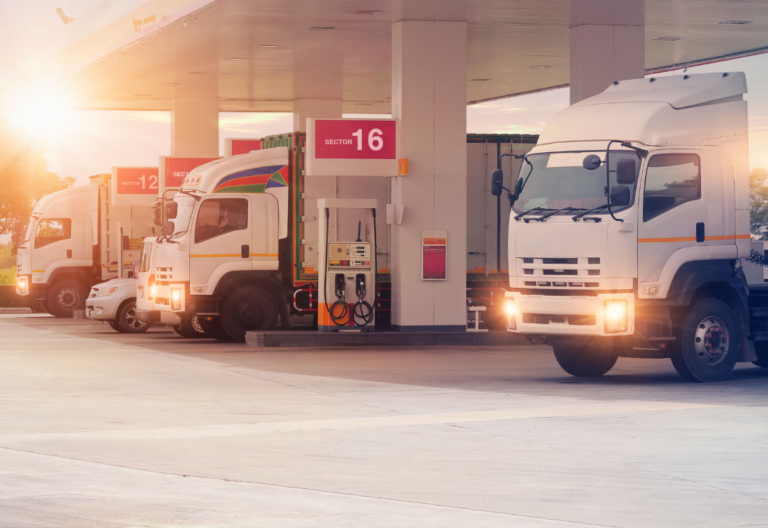In the world of business, where mobility is often the lifeblood of operations, the cost of fuel can be a significant budgetary concern. Whether you manage a small delivery fleet or a large-scale transportation operation, optimizing fuel efficiency is essential for reducing operational costs, minimizing environmental impact, and ensuring the sustainability of your business.
In this comprehensive guide, we will delve into an array of strategies, best practices, and advanced technologies that can empower business owners and fleet managers to make informed decisions and take proactive steps to enhance fuel efficiency for their vehicles.
Vehicle Selection and Maintenance
Choose Fuel-Efficient Vehicles
The journey towards fuel efficiency begins with the selection of the right vehicles for your fleet. Look for models with high miles-per-gallon (MPG) ratings, and consider the following:
Hybrid Vehicles
Hybrid cars and trucks combine traditional internal combustion engines with electric propulsion systems, offering improved fuel economy, especially in stop-and-go traffic.
Electric Vehicles (EVs)
EVs produce zero tailpipe emissions and are exceptionally energy-efficient. While they may require a higher initial investment, they can yield substantial savings in the long run.
Efficient Gas and Diesel Engines
Even within traditional gasoline and diesel options, some vehicles are known for their fuel efficiency. Research and compare the MPG ratings of different models.
Regular Maintenance
Well-maintained vehicles perform more efficiently. Create a rigorous maintenance schedule that includes:
Oil Changes
“Regular oil changes keep the engine lubricated and reduce friction, which improves fuel efficiency.”

Air Filter Replacement
Clean air filters ensure the engine receives the optimal air-to-fuel ratio, improving combustion and MPG.
Tyre Maintenance
Proper tyre inflation reduces rolling resistance, improving fuel economy. Additionally, regular tyre rotations ensure even wear.
Engine Tune-Ups
Routine tune-ups can identify and rectify issues that may be affecting fuel efficiency.
Driver Behaviour and Training
Driver Training Programs
Drivers play a pivotal role in fuel efficiency. Implement training programs that emphasize fuel-efficient driving techniques, including:
Smooth Acceleration and Braking
Aggressive driving behaviors, such as rapid acceleration and heavy braking, waste fuel. Encourage smooth transitions and maintaining a consistent speed.
Idle Reduction
Instruct drivers to turn off the engine when the vehicle is parked or waiting for an extended period.
Speed Management
High speeds result in increased air resistance and fuel consumption. Advise drivers to adhere to speed limits.
Monitor Driver Behaviour
Leverage telematics systems and onboard technology to monitor driver behavior. These systems provide data on factors like idling time, speeding incidents, and harsh acceleration or braking. Use this data to provide constructive feedback and coaching to drivers.
Route Planning and Optimisation
Use GPS and Route Optimisation Software
Invest in GPS tracking systems and route optimisation software to plan the most efficient routes for your drivers. These tools consider factors like traffic conditions, road closures, and real-time data to reduce unnecessary mileage and travel time.
Combine Trips
Encourage drivers to consolidate multiple trips into a single outing. Fewer cold starts and less idling time lead to improved fuel efficiency.
Vehicle Load and Aerodynamics
Manage Payload Wisely
Avoid overloading vehicles with unnecessary cargo. Excess weight places an additional burden on the engine and increases fuel consumption. Conduct regular checks to remove items that are no longer needed.
Roof Racks and Accessories
Remove roof racks and other accessories when they are not in use. These additions increase aerodynamic drag, reducing fuel efficiency.
Tyre Maintenance
Proper Inflation
Maintain tyres at the correct inflation levels recommended by the manufacturer. Under-inflated tyres increase rolling resistance and fuel consumption.
Tyre Selection
Consider using low-rolling-resistance tyres designed for fuel efficiency. These tyres are engineered to reduce friction and improve MPG.
Idling Reduction
Anti-Idling Policies
Implement anti-idling policies that discourage drivers from leaving their vehicles running when parked or waiting. Idling consumes fuel unnecessarily and contributes to pollution.
Engine Start-Stop Technology
Explore vehicles equipped with start-stop technology. This feature automatically shuts off the engine when the vehicle is stationary and restarts it when the driver engages the accelerator, saving fuel.
Fuel Management Systems
Fuel Cards and Monitoring Systems
Utilise fuel management systems and Linxio fuel cards to gain precise insights into fuel usage. These systems offer detailed reports on consumption patterns, allowing you to identify unusual trends and potential fuel theft.
Fuel-Efficient Routes
Select routes that offer access to fuel stations with competitive pricing. Additionally, consider bulk fuel purchasing agreements to secure lower fuel costs.
Vehicle Technology
Telematics and Fleet Management Systems
Invest in advanced telematics and fleet management systems like Linxio that provide real-time data on vehicle performance and driver behaviour. These systems enable you to pinpoint areas for improvement and optimize fuel efficiency.
Fuel-Efficient Technologies
Stay updated on innovative vehicle technologies designed to enhance fuel efficiency. These may include regenerative braking systems, advanced engine management systems, and improved transmissions.
Alternative Fuels and Technologies
Consider Alternative Fuels
Depending on your location and fleet size, consider alternative fuels such as:
Natural Gas
Compressed natural gas (CNG) and liquefied natural gas (LNG) are cleaner-burning alternatives to traditional gasoline and diesel.
Propane
Propane, also known as liquefied petroleum gas (LPG), can be a cost-effective and environmentally friendly choice.
Electric and Hybrid Vehicles
Evaluate the feasibility of incorporating electric or hybrid vehicles into your fleet. These vehicles are becoming increasingly viable for various business needs and can offer substantial fuel savings.
Monitoring and Continuous Improvement
Regular Data Analysis
Regularly analyze data from telematics systems, fuel management systems, and driver feedback to identify areas where fuel efficiency can be improved. Set benchmarks and goals for your fleet to strive toward.
Driver Feedback and Incentives
Provide drivers with regular feedback on their fuel efficiency performance. Create incentive programs that reward drivers who consistently achieve fuel-saving targets.
Conclusion
Optimising fuel efficiency for your business vehicles is a multifaceted and ongoing effort that requires careful planning, technological investment, and driver engagement. By implementing the strategies and practices outlined in this comprehensive guide, you can not only reduce operational costs but also minimize your environmental impact. Prioritising fuel efficiency not only benefits your bottom line but also positions your business as a responsible and sustainable player in today’s competitive marketplace. Stay committed to continuous improvement, and your efforts will yield long-term benefits for your business and the environment.



